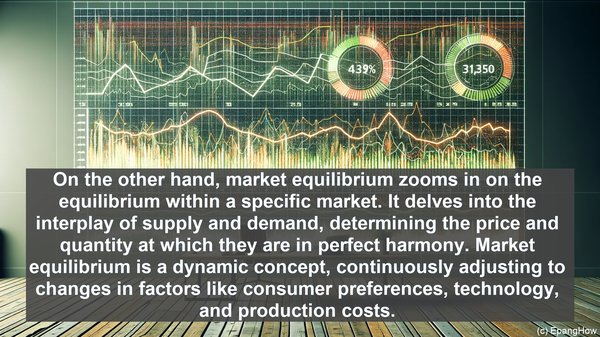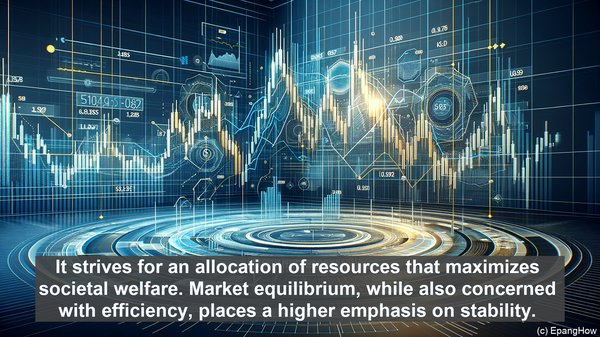Introduction: The Foundations of Equilibrium
Greetings, fellow enthusiasts of the intricate world of economics! Today, we embark on a journey to unravel the disparities between two fundamental concepts: economic equilibrium and market equilibrium. While these terms may seem synonymous at first glance, a closer examination reveals their distinct characteristics and implications.
Defining Economic Equilibrium: A Macro Perspective
Economic equilibrium, in its essence, refers to a state of balance in an entire economy. It occurs when the aggregate demand matches the aggregate supply, resulting in a stable price level and output. This equilibrium is often analyzed on a national or global scale, taking into account multiple markets and sectors.
Market Equilibrium: The Microcosm of Balance
On the other hand, market equilibrium zooms in on the equilibrium within a specific market. It delves into the interplay of supply and demand, determining the price and quantity at which they are in perfect harmony. Market equilibrium is a dynamic concept, continuously adjusting to changes in factors like consumer preferences, technology, and production costs.

The Role of Factors: Homogeneity vs Heterogeneity
One crucial distinction between economic and market equilibrium lies in the factors they consider. Economic equilibrium assumes a certain level of homogeneity, treating all goods and services as interchangeable. In contrast, market equilibrium acknowledges the heterogeneity of products, recognizing that each has its own unique supply and demand dynamics.

Time Horizons: Short Run vs Long Run
Time is another differentiating factor. Economic equilibrium often takes a long-run perspective, considering the adjustments that occur over an extended period. It accounts for factors like technological progress, population growth, and changes in resource availability. Market equilibrium, on the other hand, can be analyzed in both the short run and the long run, with the former being more sensitive to immediate changes.
Implications: Efficiency vs Stability
The implications of these equilibria also diverge. Economic equilibrium, with its focus on the overall state of the economy, emphasizes efficiency. It strives for an allocation of resources that maximizes societal welfare. Market equilibrium, while also concerned with efficiency, places a higher emphasis on stability. It aims for a state where there are no imbalances or excesses, ensuring a smooth functioning of the market.
